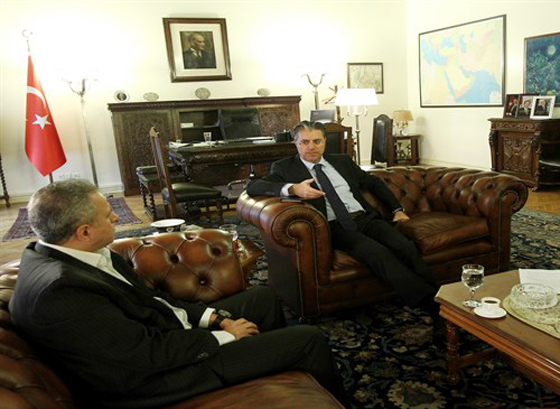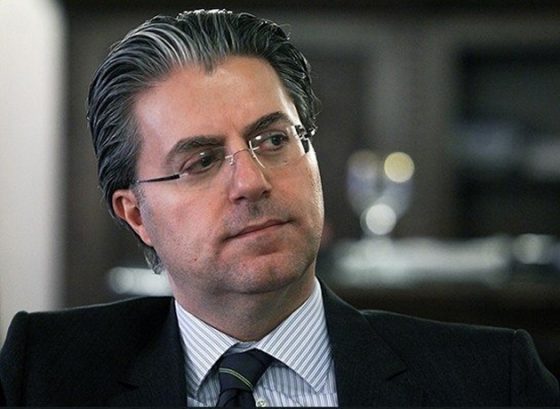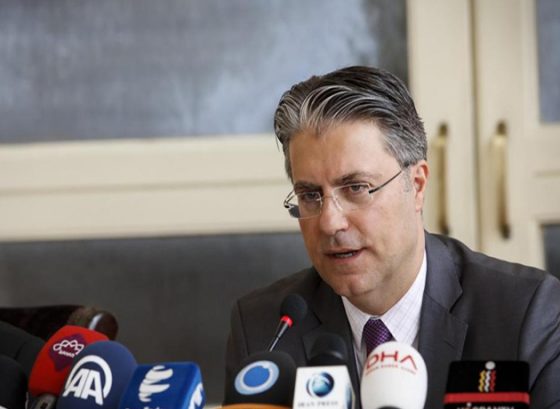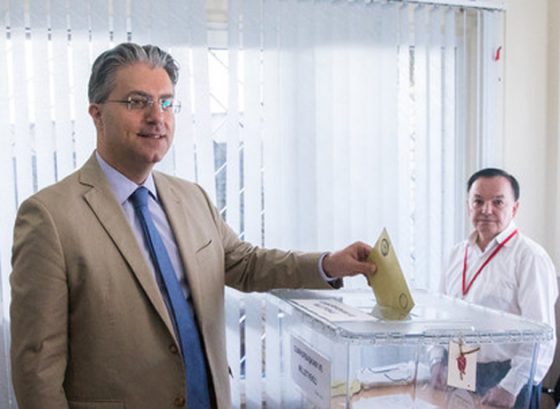Turkish ambassador: Ankara, Tehran have strong bonds

Turkish Ambassador to Tehran, Hakan Tekin, underlined the amicable relations between the two neighboring countries, AVA Diplomatic reports.
In an interview with the English newspaper Iran Daily coming below:
IRAN DAILY: Ankara never stopped supporting Tehran during the unfair sanctions against Iran. How do you outline the prospect of bilateral cooperation in post-JCPOA era?
HAKAN TEKIN: Turkey does not believe in sanctions regime as they proved ineffective in the past. Ankara did its best to minimize the extent of sanctions, managing to obtain some waivers and continue its trade with Iran.
Iran used to export 95 percent of its natural gas output to Turkey which had to be curtailed under the sanctions regime. Turkey, however, pushed hard in the international arena and managed to keep importing gas from Iran. Turkey also purchases approximately 105,000 bpd of oil from Iran.
Things will change considerably in the coming months as the ‘Implementation Day’ of July 14 nuclear deal is approaching.
Q:Have sanctions had any negative impacts on Turkey-Iran ties?
A:In 2014, trade between Iran and Turkey stood at $14 billion – $4 billion (Turkey’s exports) and $10 billion (Iran’s overseas sales). In 2012, the figure was about $22 billion. The sanctions intensified in 2012 and Ankara had to abide by the embargoes, especially those enforced by the UN Security Council. In recent years, Turkish economy has highly developed and become a lot more privatized. The Turkish government only abides by the UN sanctions but some Turkish private companies, especially those doing business in the US and using the EU funds, have to comply with their regulations.
The two states exchanged high-ranking delegations many times as embargoes did not affect bilateral relations politically.
Q:Iranian President Hassan Rouhani and his Turkish counterpart Recep Tayyip Erdoğan have set an annual $30 billion trade target. How do you make of it?
A:The embargoes have been the main hurdle to achieving the target. Thirty billion dollars could be a rather small figure in a few years.
Turkish business circles are very much interested in Iran’s market. Also, Turkey has a dynamic market which is completely open to other countries. Turkish investors and businessmen are implementing projects all over the world even in Latin American states. It could be witnessed in Iran. Tehran and Ankara could cooperate in joint ventures beyond their borders.
Some believe that the Turkish companies managed to strengthen their presence in Iran as Tehran had no other alternative at the time of sanctions. Now that the Iranian market is opening to the world, they argue that Turkish investors may lose ground in their competition with international giants. But thanks to their high-quality services, the Turkish companies are not intimidated and have even the capacity to expand their presence in Iran.
Q:Let’s shift to the global menace – terrorism. Turkey has also fallen victim to terrorist attacks, losing many people recently. What is the root cause of the violence gripping the region and how should it be dealt with?
A:Terrorism is one of the biggest threats to all countries. The region has been going through a very challenging period in the past few years. Turkey has also been a target of such crimes. More than 40,000 of Turkish citizens have lost their lives in the terrorist acts by PKK in the past 30 years.
The whole region has now faced a new phenomenon – Daesh – a big disgrace to the humanity. They [Daesh terrorists] are defiling Islam which is the religion of peace. Al-Qaeda, also a terrorist group, began to develop after the US invaded Iraq in a post-9/11 move in 2003.
In the past five years, Syria has witnessed crimes of ISIL whose control over swathes of the country needs a thorough study.
Q:Tony Blair, former British prime minister and a main architect of Iraq war, in an exclusive interview with CNN, finally admitted that the US-led invasion of Iraq helped give rise to the ISIL. What is your take?
A: Some 12 years ago, the US requested for sending its troops to Iraq through Turkish territory. But, the Turkish parliament rejected the demand.
Many of the problems we are facing today in the region are the consequences of that invasion and postwar policies of the US.
Q:How could Iran and Turkey foster unity in the Islamic world, which is a must for solving regional problems?
A:The two major Islamic countries have potential to play a very significant role to this end. Undoubtedly, Tehran and Ankara will greatly contribute to resolving not just regional but international issues.
Other countries, including Saudi Arabia and Egypt, are also required to get engaged.
Sectarian strife and internal discord are serious threats to the Islamic world.
Turkey is also accused of pursuing a sectarian agenda supporting Sunni groups but, in fact, a Muslim is a Muslim [regardless of being a Shia or Sunni] in the country.
Although outsiders try to plant the seeds of discord in the Muslim world and escalate conflicts in the region, Muslims should not evade their responsibilities and blame them for all of problems. The Islamic nations have to focus more on the factors that help promote unity among them.




